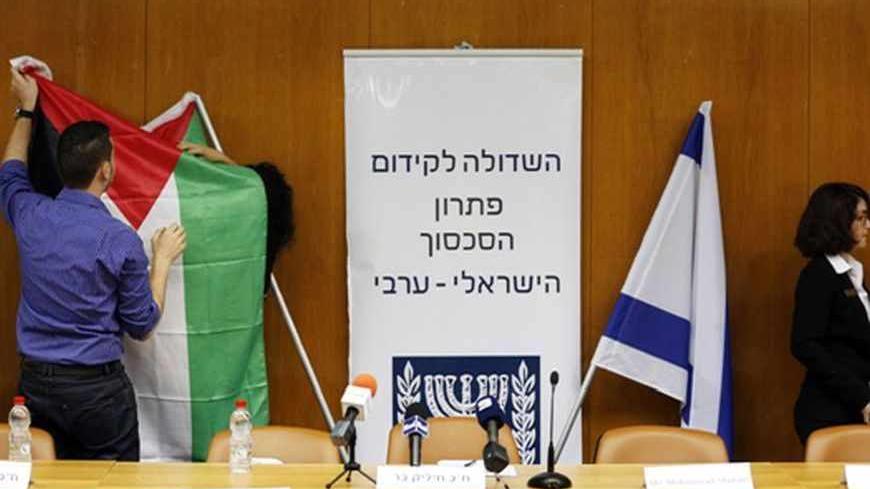The little optimism that surrounded the takeoff round of the Palestinian-Israeli negotiations in Washington at the end of July is fading on the eve of the second round to be held in Jerusalem on Aug. 14. The optimism was initially due to the efforts of US Secretary of State John Kerry, as well as his personal style and direct involvement.
Two factors allowed for the relaunching of the peace process, with the hope of reaching a negotiated settlement within nine months. From the Palestinian National Authority perspective, negotiations in a US-sponsored process are a one-way ticket. What was needed for such a process to succeed was to create — as much as possible — better conditions for the takeoff, despite skepticism surrounding the end results.



